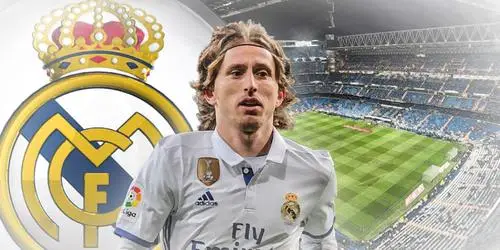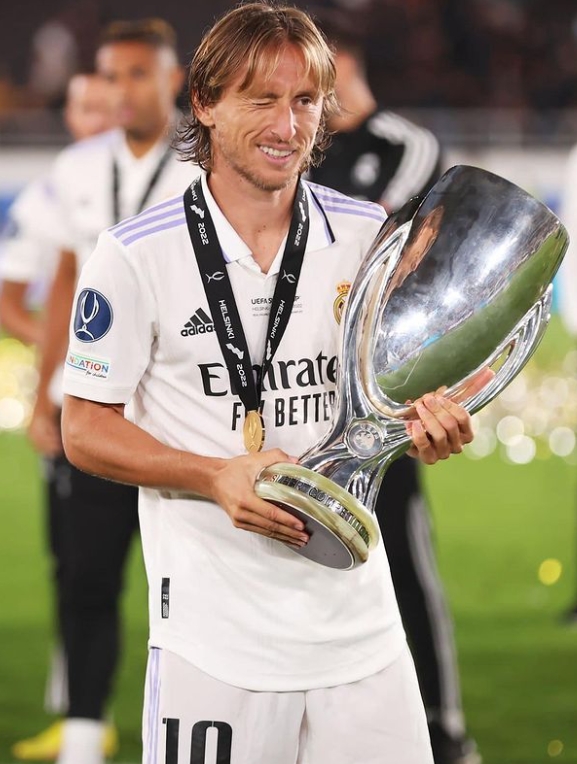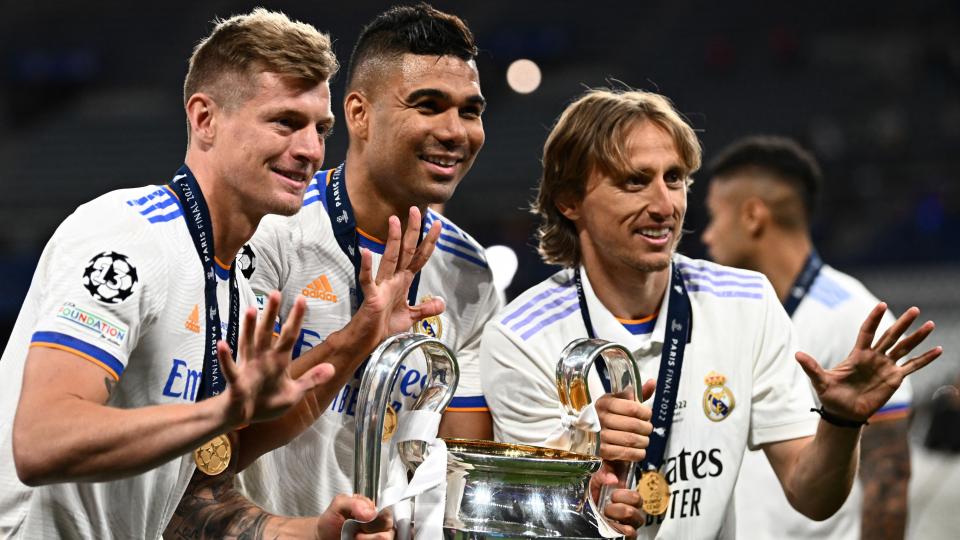Real MadridLuka Modric : Tribute to football icons

Real Madrid’s Luka Modric: A Tribute to a Football Icon
Luka Modric, the Croatian midfielder for Real Madrid, is widely considered one of the greatest players of his generation. With his incredible technical skills, vision, and precision, Modric has become a fixture of Real Madrid’s starting lineup and a key player in their success over the years. In this article, we will explore Modric’s journey from his early beginnings to his current status as a football icon, and the impact he has had on the beautiful game.
Early Life and Career
Modric was born on September 9, 1985, in Zadar, Croatia. He began playing football at a young age and quickly showed promise. At the age of 16, he signed his first professional contract with Dinamo Zagreb, one of the most successful clubs in Croatia. Modric quickly became a key player for Dinamo, helping them win the Croatian league title in 2006 and 2007.
Modric’s performances in Croatia caught the attention of several top European clubs, and in 2008 he signed for Tottenham Hotspur in the English Premier League. Modric’s time at Tottenham was a success, with the midfielder earning rave reviews for his performances and helping the club reach the quarter-finals of the UEFA Champions League in the 2010-2011 season.
Move to Real Madrid
Luka Modric joined Real Madrid in August 2012, signing a five-year deal with the Spanish giants. He was signed by then-manager Jose Mourinho, who saw in Modric the perfect midfield partner for Xabi Alonso.
In his first season at the club, Modric struggled to adapt to the demands of playing for one of the biggest clubs in the world. He was often played out of position, and his performances were inconsistent. However, in the second half of the season, Modric began to show glimpses of the talent that had earned him the move to Real Madrid.

The following season, Modric established himself as a key player for Real Madrid. He formed a formidable midfield partnership with Alonso, and his ability to control the tempo of the game and create scoring opportunities for his teammates was crucial to Real Madrid’s success. Modric played an instrumental role in Real Madrid’s run to the Champions League semi-finals, where they were knocked out by eventual winners Bayern Munich.
In the 2014-15 season, Modric’s importance to Real Madrid was further underlined. He played in 44 games across all competitions, scoring two goals and providing six assists. He was a key part of the team that won the Champions League for the first time in 12 years, scoring in the quarter-final victory over Atletico Madrid.
Modric’s performances in the 2015-16 season were even more impressive. He played in 41 games across all competitions, scoring three goals and providing six assists. He was again a key part of the team that won the Champions League, scoring in the final against Atletico Madrid.
In the 2016-17 season, Modric’s importance to Real Madrid was once again highlighted. He played in 41 games across all competitions, scoring one goal and providing 11 assists. He was instrumental in Real Madrid’s run to the Champions League final, where they beat Juventus 4-1 to win the competition for the third time in four years.

In the 2017-18 season, Modric played a pivotal role in Real Madrid’s run to the Champions League final once again. He played in 42 games across all competitions, scoring three goals and providing six assists. He was named the Man of the Match in the final against Liverpool, as Real Madrid won the competition for the fourth time in five years.
Modric’s performances in the 2017-18 season were so impressive that he was awarded the Ballon d’Or, becoming the first player other than Lionel Messi or Cristiano Ronaldo to win the award since 2007.
In the 2018-19 season, Modric continued to be a key player for Real Madrid. He played in 43 games across all competitions, scoring two goals and providing eight assists. Real Madrid had a disappointing season, finishing third in La Liga and being knocked out of the Champions League in the round of 16.
Despite Real Madrid’s struggles in the 2018-19 season, Modric’s performances were still highly praised. He was named the UEFA Men’s Player of the Year and the Best FIFA Men’s Player, becoming the first player other than Messi or Ronaldo to win both awards since 2007.
Modric’s impact on Real Madrid during his time at the club cannot be overstated. His technical ability, vision, and precision passing have been key to Real Madrid’s success, and he has established himself as one of the greatest midfielders in the club’s history. Modric’s legacy at Real Madrid is secure, and he will always be remembered as a football icon.
Individual Accolades
Modric’s performances for Real Madrid have also earned him individual accolades. In addition to the Ballon d’Or in 2018, Modric was also named the UEFA Men’s Player of the Year in 2018, and the Best FIFA Men’s Player in 2018. He was also named in the UEFA Champions League Squad of the Season
Conclusion
Luka Modric is a true football icon, and his contributions to Real Madrid’s success over the years have been immeasurable. His technical ability, vision, and precision passing have set a new standard for midfield play, and his performances have earned him numerous individual accolades. Modric’s impact on the game of football will be felt for years to come, and his legacy as one of the greatest players of his generation is secure.






 Arsenal
Arsenal